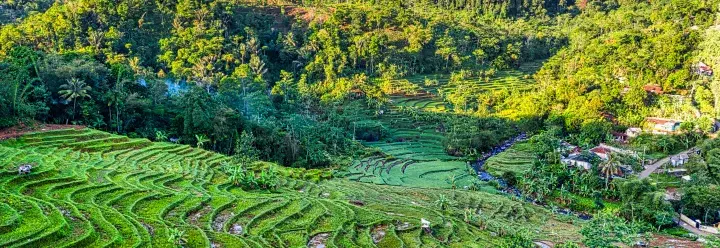ISEAL is pleased to announce the release of a new joint position paper, which will help companies navigate monitoring and verification of landscape actions and performance outcomes.
Companies are increasingly recognising the necessity of collective action beyond project boundaries to address sustainability challenges effectively. However, a key challenge to date has been in communicating the benefits for companies in making the necessary investments, especially in monitoring and evaluation.
A new position paper authored by the ISEAL-convened landscape and jurisdictional practitioner community bridges this gap, setting clear expectations for companies seeking to understand, manage, and communicate about the results of their investments in landscape and jurisdictional initiatives.
This fourth instalment in a series of collective positions outlines several benefits companies can derive from coordinated landscape monitoring, helping to make the internal case for investment.
These benefits include evidence substantiation for claims and communications, strengthened alignment with stakeholders, improved effectiveness in addressing systemic issues, and cost efficiencies through shared responsibilities.
As well as laying out what role companies should play in landscape-scale monitoring and why, the paper provides practical details on how companies can effectively support efforts as part of a Landscape or Jurisdictional Approach (LJA) initiative.
The paper sets out some best practices that companies should look for in the monitoring process:
- Collective monitoring framework: When it comes to the LJA’s monitoring framework, companies are urged to prioritise elements such as setting sustainability goals and SMART targets, defining metrics for assessment, ensuring access to high-quality data sources, establishing data management protocols, and implementing data governance policies to support effective monitoring frameworks.
- Baseline data: Establishing performance baselines is crucial for measuring progress accurately. Companies should consider factors such as the sustainability scope, geographic scope, date of baseline, consistency of data, and reconciliation of multiple baselines to ensure relevance and reliability.
- Activity monitoring: Companies should monitor outputs and short-term outcomes of actions, align data with other initiatives, share data with multistakeholder platforms, link actions to landscape goals, and seek validation from local stakeholders.
- Performance monitoring: Companies can support landscape-scale performance monitoring by encouraging the use of high-quality data, ensuring local applicability, assessing the validity of the results chain and supporting collective efforts to improve data.
- Verification: Verification builds trust in data reliability and accuracy. Companies should assess the nature of claims, level of risk, track record of initiatives, transparency of data, and trustworthiness of data sources. They should also ensure validation of baseline information, implementation of data management protocols, and accuracy in data analysis and communication.
- Data sharing: As holders of large, consolidated datasets, companies have an important role to play in supplying LJAs with data that paints a complete picture of a sourcing landscape. Sharing non-confidential data, ensuring transparency, making data publicly available, and following good data sharing practices are crucial for facilitating collaboration and communication among stakeholders.
The practitioner community co-signing the paper urges companies investing in landscape initiatives to participate in the development of collective monitoring frameworks, establish baselines, monitor actions and performance, verify data, and share relevant data sets with stakeholders.
This collective effort ensures transparency, credibility, and accountability in landscape-scale performance reporting and plays an important role in driving sustainable outcomes across landscapes and jurisdictions.
Read the position paper > Company-responsibilities-for-supporting-landscape-monitoring_ISEAL_01-2024.pdf (isealalliance.org)



